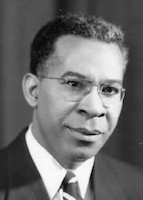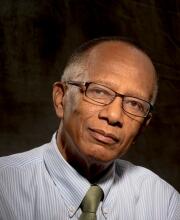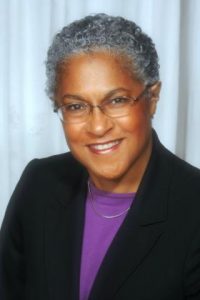
Image by Melissa C. Brown, used with permission.
Black Sociology: A Primer
This post is adapted from “Black Sociology: Race and Power Dynamics in Sociology,” published in June 2023 on BlackFeminisms.
My work in Black feminist digital sociology draws on Black feminist thought as a conceptual framework for the mixed methods study of digital society. One of its predecessors, Black sociology, analyzes society from the standpoint of Black people to highlight how historical social structures affect them today. Its scholars-activists bridge academia and the public from a non-eurocentric perspective by addressing the interconnectedness of racial and economic inequalities impacting Black Americans.
This paradigm critiques White sociology for how it contradicts its purported tenets of humanism and objectivity through anti-Black scientific racism that manufactures claims of racial inferiority to justify subordination. In contrast, Black sociology claims the socioeconomic challenges Black people face, such as higher poverty and lower educational achievement rates, are evidence of racism and capitalism’s interdependence.Such a framework seems poignant at a time when state and local governments across the United States aim to eliminate the presence of Black intellectual thought from the halls of academia. For this reason, this blog post explores the historical roots, evolution, key figures, and current state of Black sociology as a field.
The Historical Roots of Black Sociology
From the very beginning, Black scholars have navigated sociological negation characterized by varying patterns of oppression and racism that can be summed up in three distinct periods: exclusion and segregation (1895-1930), accommodation and assimilation (1931-1964), and co-optation and containment (1965-present). These periods also produced three distinct groups of Black sociologists, respectively: the Beginning School, the New School, and the New Black Sociologists.
The Beginning School
In 1895, William Edward Burghardt Du Bois earned the first Ph.D. awarded to a Black person from Harvard University’s Department of History. Despite this disciplinary background, he is now widely considered a founding father of sociology. Consequently, the awarding of his degree is considered the genesis of Black people’s involvement in sociology. Du Bois used his training to research the lives of Black people in America, as did several other early Black sociologists, including George E. Haynes, Richard R. Wright Jr., and Kelly Miller. However, anti-Black racism from White sociologists fostered academic segregation within the profession, making it difficult for their contributions to be recognized and acknowledged.
The New School
The New School of Black sociologists was initiated by DuBois and developed by E. Franklin Frazier, Charles S. Johnson, and others. They used sociological tools to study the direct consequences of urbanization, integration, rural poverty, and segregation on Black people. Still, they endured bigotry, including being called propagandists. In this era dominated by White disciplinary standards, New School scholars were forced to adhere to positivistic approaches. Even so, they used their research as an act of protest, campaigning for freedom and justice for Black people.
New Black Sociologists
The New Black Sociologists experienced increased professional visibility due to racial integration. Though some may perceive this as progress, greater integration drained Black institutions of Black scholars, thus undermining their existence and that of the entire Black sociological tradition in the process. In integrated spaces, a caucus structure often constrains Black sociology, leaving little promise of parity while it dismantles the Black sociological tradition. Additionally, predominantly White universities often hire a token number of Black sociologists solely as race relations experts, failing to recognize the diversity of Black intellectual traditions. Into the present day, Whiteness defines the substance and epistemology of sociology.
Overall, the historical foundations of Black sociology established a social science paradigm centered on self-definition and self-determination that maintains Black identity. Even so, this tradition’s rejection of scientific racism remains vulnerable to the broader discipline’s discriminatory processes and structures.
The Evolution of Black Sociology
The evolution of Black sociology in recent years has been shaped by an extension beyond the study of race to incorporate intersectionality; an emphasis on social justice and activism; and an incorporation of diverse perspectives, methodologies, and approaches rooted in the standpoint of Black people. Black sociology continues to amplify marginalized voices and expand our understanding of power, resistance, and liberation.The framework of Black sociology has evolved due to the transformative role of intersectionality, particularly in the field of Black feminist sociology, which shows how race, gender, and other social characteristics affect socioeconomic inequality. It also takes Black sociology beyond the study of racism to examine the intricacy of various oppressive systems overlapping and reinforcing each other. Accordingly, Black feminist sociology provides a more nuanced examination of power, inequality, and resistance in society.
Black sociology’s evolution also includes a growing emphasis on social justice and activism. By emphasizing the link between theory and praxis, this emphasis fosters transformative research agendas, community engagement, and collective resistance in pursuit of liberation and Black self-determination. Black sociologists also argue that objectivity and neutrality in sociological study frequently maintain the status quo. They prefer a more applied approach to research that recognizes how Black social scientists perceive injustice. Thus, this framework emphasizes marginalized populations’ perspectives and experiences over prevailing sociological theories of race and socioeconomic inequality.
The field of Black sociology also evolved through the incorporation of perspectives such as critical race theory, which provides nuanced understandings of power relations and racial inequality. Adopting such frameworks enables it to challenge dominant narratives and foster a more comprehensive understanding of social phenomena.
Key Figures in the Field of Black Sociology
W.E.B DuBois’s study of race and social inequality in The Souls of Black Folk provides the groundwork of the sociological examination of Black American life as conceptualized by his theory of double consciousness. Double consciousness describes the social psychological experience of Black Americans who must constantly navigate between their own cultural identity and the norms of a White-dominated society. In addition to DuBois, numerous scholars have done work that exemplifies Black sociology, but I will focus on three: Oliver Cromwell Cox, Orlando Patterson, and Patricia Hill Collins.

Oliver Cromwell Cox
Oliver Cromwell Cox was born in August 1901 in Port of Spain, Trinidad. He moved to the United States during his childhood and later received degrees in economics and sociology from the University of Chicago, including a Ph.D. in Sociology in August 1938. Cox went on to teach at Wiley College, Tuskegee Institute, Wayne State University, and Lincoln University.
Cox’s scholarship primarily challenged dominant theories of race relations from a diasporic perspective that recognized the interrelations of racism and capitalism. He denied biological determinism, asserting that race was a social construct of White supremacist power relations. He also claimed that racism underpinned capitalism and had global effects. His most influential works include Caste, Class, and Race; Capitalism as a System and Foundations of Capitalism. His sociological contributions have helped us comprehend racial relations in the United States and beyond.

Orlando Patterson
Orlando Patterson, born in Westmoreland, Jamaica, is another Caribbean sociologist whose work has contributed heavily to Black sociology. He earned a Ph.D. in sociology from the London School of Economics in 1962 after studying economics at the University College of the West Indies in Kingston, Jamaica. Since 1971, he has taught sociology at Harvard University.
Patterson upends mainstream sociological theories of racial relations through an emphasis on the impact of slavery on contemporary society. His seminal work published in 1982, Slavery and Social Death, argues slavery was both a social and economic insinuation that profoundly shaped the lives of enslaved people and their descendants. Other publications include Freedom in the Making of Western Culture; Modern Trafficking, Slavery, and Other Forms of Servitude; and The Ordeal of Integration.

Patricia Hill Collins
Born in May 1948, in Philadelphia, Pennsylvania, Patricia Hill Collins is one of the founders of the field of Black feminist sociology. She studied sociology at Brandeis University. In 1970, she earned a master’s in teaching from Harvard University and then earned a Ph.D. at Brandeis in 1984. Collins taught at University of Cincinnati and University of Maryland, College Park, where she is currently Distinguished University Professor Emerita.
One of the key contributions of Collins’s work is her exploration of the concept of the matrix of domination. The groundbreaking work Black Feminist Thought uses this concept within sociological research to illuminate the intersectionality of race, gender, and class in an investigation of the unique experiences of Black women. Collins also examined Black feminist activism and community organizing as social change instruments in justice and liberation movements.
The Current State of Black Sociology
Despite progress, Black sociologists continue to face challenges from the broader academy. To start, Black sociologists remain underrepresented in academia and under-appreciated for their work. Biased evaluation standards limit their access to resources, scholarly networks, and funding possibilities. Furthermore, persistent eurocentrism in mainstream sociology devalues knowledge produced by marginalized populations.Nevertheless, Black sociology remains important to the field because it continues to challenge mainstream theories by focusing on African diasporic experiences and viewpoints. The study of Black people helps sociologists comprehend societal power dynamics and promote inclusive and egalitarian social sciences. If it can overcome racism within academia, Black sociology is well poised to fight systemic inequality and promote social justice in the broader world.
Melissa C. Brown is in the Department of Communication at Santa Clara University. The founder of Black Feminisms, she uses intersectionality as an analytical framework to study identity- and community-formation in digital spaces.

Comments 1
madhur matka
September 28, 2023Black sociology is a vital field that explores the unique social experiences, challenges, and triumphs of Black communities. 'Black Sociology: A Primer' is a valuable resource for anyone seeking a deeper understanding of these complex issues. It's essential that we educate ourselves about the social dynamics that have shaped the Black experience and continue to work toward a more inclusive and equitable society. Kudos to the authors for shedding light on this important topic.